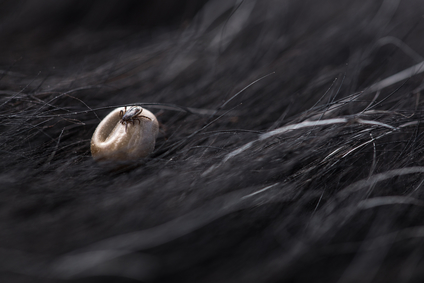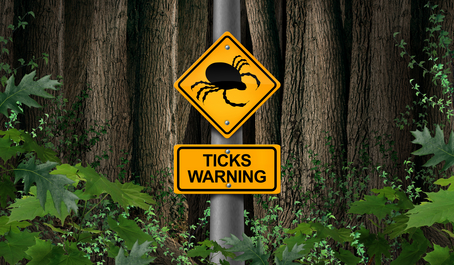How To Locate And Deal With Ticks In Your Clarksburg, MD Home
- Esther M.
- Nov-12-2019
- Montgomery
This week we celebrate Veteran’s Day. We honor active, retired and passed on military personnel who have given their time, energy, bodies and lives to keep us safe. No one is better suited to understand the benefit of peace and safety than the people of Clarksburg, MD. Over the last two decades, there has been a growth and development boom that could only take place due to a secure environment. We’ve built more schools, parks, homes, and even the great Clarksburg Premiere Outlets Shopping Center.
Speaking of homes, did you know that trees, tall grass or open space in your yard could be a potential hosting site for hungry ticks in your home in Clarksburg, MD? They crawl up grass and plant stems and wait patiently for you or a bigger animal to come by. Then they climb! This is why they’ll usually turn up on your leg hairs. Pets are more vulnerable to tick attacks because of their hairy bodies that serve as hideouts for the ticks.
What does a tick look like on a dog?
Ticks come in many sizes and shapes, but generally they’re small, flat, black and an oval shape. Once they’ve gorged on blood, ticks usually expand to the size of a small coffee bean. They can look like a wart in a dog’s fur, but on closer inspection you’ll be able to see their eight legs. Read more at Country Living…

As you check your pets for ticks, don’t forget to check yourself if you suspect you’ve been exposed to them. Look out for them on your legs, armpits, groin and behind your ears.
When people think ticks, they usually think “That’s a problem for more outdoorsy people.” But did you know there are also ticks that prefer more domesticated areas?
Although most ticks prefer the great outdoors, certain species can live and thrive indoors. The brown dog tick, for example, can cause high levels of infestation in homes, dog kennels, and other structures where dogs are present. Soft ticks also tend to reside indoors, typically living in rustic cabins or other dwellings with mice or other rodent infestations. These ticks live in rodent burrows and feed on hosts, including people and pets, while they sleep. Both of these species of ticks are able to reproduce and lay eggs indoors, which is why they can settle in and live within the home environment. Read more at iGenex…
Talk about adapting! Ticks can live and breed both outdoors and indoors. This is why you want the crew at Backyard Bug Patrol to come and treat your yard and also inspect your indoors.

Ticks are not only able to live in every place, but they can also survive through every season. Although some tick species prefer warmer temperatures and are more active during the spring and summer months, others remain active year-round. Here’s how ticks choose and hunt their prey:
The insect finds its host by detecting breath and body odors, or by sensing body heat, moisture and vibrations. Some species can even recognize a shadow, the CDC said. While hunting, ticks pick a place to wait by identifying well-used paths. They then wait for a host, resting on the tips of grasses and shrubs. While they can’t fly or jump, many tick species wait in a position known as “questing.” While questing, ticks hold onto leaves and grass by their third and fourth pair of legs. The ticks hold the first pair of legs outstretched, waiting to climb on to a host. Read more at SILive…
Remember that after returning indoors from tick-infested areas, it’s important to check yourself, your children and pets. Your chance of getting sick from a bite is lower if you remove the tick quickly.

As always, we urge you to contact Backyard Bug Patrol, the leader in tick control in Clarksburg, MD. We started this business to protect our own backyard from ticks, so you can be sure we’ll be just as passionate about protecting yours!
Related posts:
- How Changes In Lyme Disease Guidelines May Affect Kids In Bethesda, MD
- Mosquitoes In Germantown, MD: To Eradicate Or Not To Eradicate?
- Possible Challenges To Effective Lyme Disease Treatment In Dickerson, MD
- How To Spot Fleas In Sandy Spring, MD
- Should You Worry About The Asexual Asian Longhorned Tick If You Live In Gaithersburg, MD?
